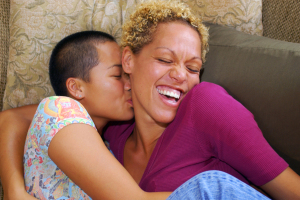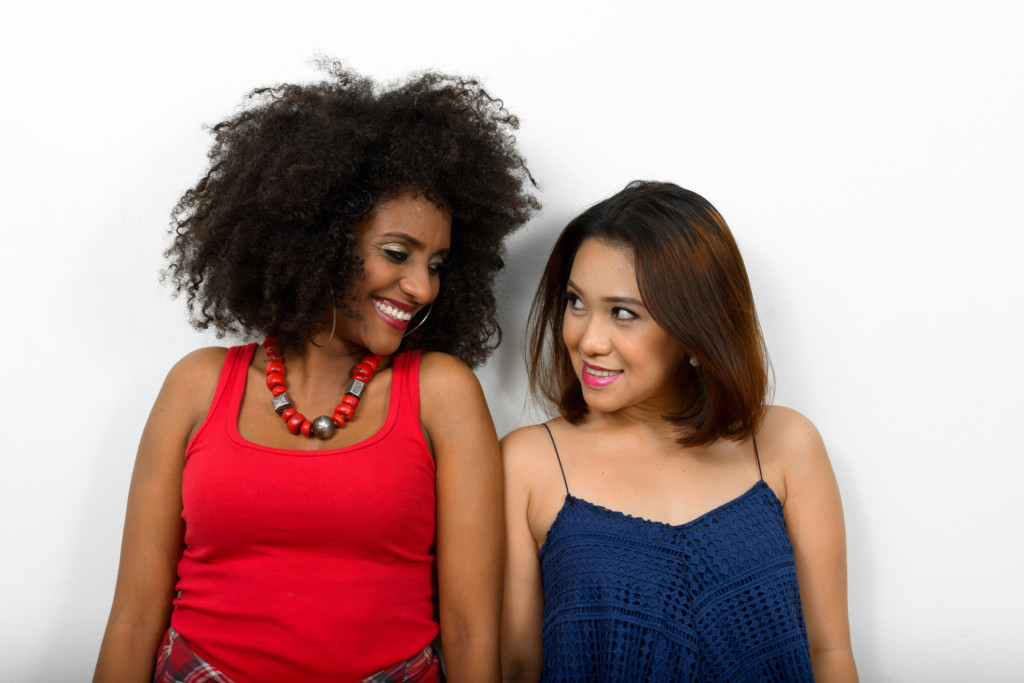After months of obsessing, Sally had finally scheduled her first date.  She was interested in someone on a dating website, “chatted†a few times online, and set up a lunch meeting.  I was impressed with her enthusiasm…but then  she started thinking out loud.
Sally’s date-to-be lived near a lake, and  Sally had a boat.  “Maybe I can finally get that boat in the water,†she mused. “It would be so convenient to just walk down to the pier and hop in for a sunset cruise.†She laughed and said “I know I’m getting ahead of myself, but really, it would be so nice.  I can see us now…â€
Well yes, it would be nice—but a lot of other things need to happen first.  Like, meeting the person, seeing if there’s a mutual attraction, getting to know her, figuring out if there’s a good fit (in every way, not just sexually), and all those other boring details. In fact, the list of steps involved in finding a romantic partner is so long that it’s very tempting to skip over all that and hope for love at first sight.
Don’t do it!  Research suggests that only 5% of romantic relationships start with eyes locking across a crowded room.  The other 95% call for a little more work, like living nearby and hanging out in the same places.  Or, very often, meeting each other online, and eventually arranging the first date. However it comes about,  first dates are fraught with uncertainty.  What is one to do?
Here are two suggestions:
(1) Try to help your date feel relaxed
(2) Try to get to know her, by gathering some basic information.
 Helping someone else to relax is incredibly, mutually, therapeutic.  It makes us focus externally instead of internally,  and do things that promote safety and openness.  For example, smiling and eye contact, together,  convey a friendly, inviting attitude.  That’s relaxing, and very attractive.  In fact, when first meeting someone, nonverbal behaviors of smiling and eye contact have more impact than most of the verbiage.  Worth practicing!
Helping someone else to relax is incredibly, mutually, therapeutic.  It makes us focus externally instead of internally,  and do things that promote safety and openness.  For example, smiling and eye contact, together,  convey a friendly, inviting attitude.  That’s relaxing, and very attractive.  In fact, when first meeting someone, nonverbal behaviors of smiling and eye contact have more impact than most of the verbiage.  Worth practicing!
Good listening also helps, because it means paying attention to the other person, and who doesn’t like attention?  Of course, that needs to go both ways–but in the beginning you just need to do your part and see what happens next.  There’s plenty of time after a first date to reflect on the attention-sharing quotient, and decide if you want to have a second date.  But you can just start with good listening,  and see where that takes you.
Usually, good listening can take you to some basic information that you need to have.  For example, you do need to know if this person is currently single, and it helps to know for how long.  It’s also good to know a little about employment, social networks, and special interests.  And while listening to what she says, you’ll notice how she says it.  Is she positive, negative, sarcastic, defensive, blaming, stoic, considerate?  These are all qualities that manifest almost immediately, if you’re paying attention.
This brings us to the part about appropriate self-disclosure.  Friendly openness is not to be confused with losing boundaries.  Responding with in-kind information is courteous; for example, you talk about your work or friends or family and I talk about mine. Diving deep into personal traumas or relationship disasters  is TMI on a first date. It may feel like instant intimacy at the time, but unfortunately it’s usually a sign of boundary problems which will only get worse.

One woman asked “How can you cut the crap and just get to know what the other person’s really like?† But what she’s really like has a lot to do with how she handles a first date.  It’s not crap, it’s an uncomfortable interpersonal situation!  There’s a lot of data right in front of you–you don’t need to do much excavating to get the information you need.
And remember, all you need to know after a first date is if you’d enjoy a second date.  No need to decide about where you’ll live or how your friends and families will get along.  As much as we’d all love to go from A to Z directly, building trust and  intimacy is a process, and it takes time.  That river flows by itself, and pushing it won’t help.
So how do we do this better?  That’s the theme for the interviews I’m doing now, and for this series on dating wisely.
I’d love to hear your thoughts, experiences, ways  you’ve managed to balance of emotion and reason. Please post your comments and questions here, or follow the conversation at Epochalips on Facebook.
Because many of you have had very positive outcomes–that’s why we need to talk about dating!
Glenda Corwin, Ph.D is a clinical psychologist who specializes in lesbian sexual issues. She is the author of Sexual Intimacy for Women: A Guide for Same Sex Couples (Seal Press, 2010).
Her specialty areas of practice are:
- Issues associated with female sexuality and sexual desire
- LGBT individuals and couples
- Workshops on sustaining sexual intimacy
Find out more at GlendaCorwin.com


